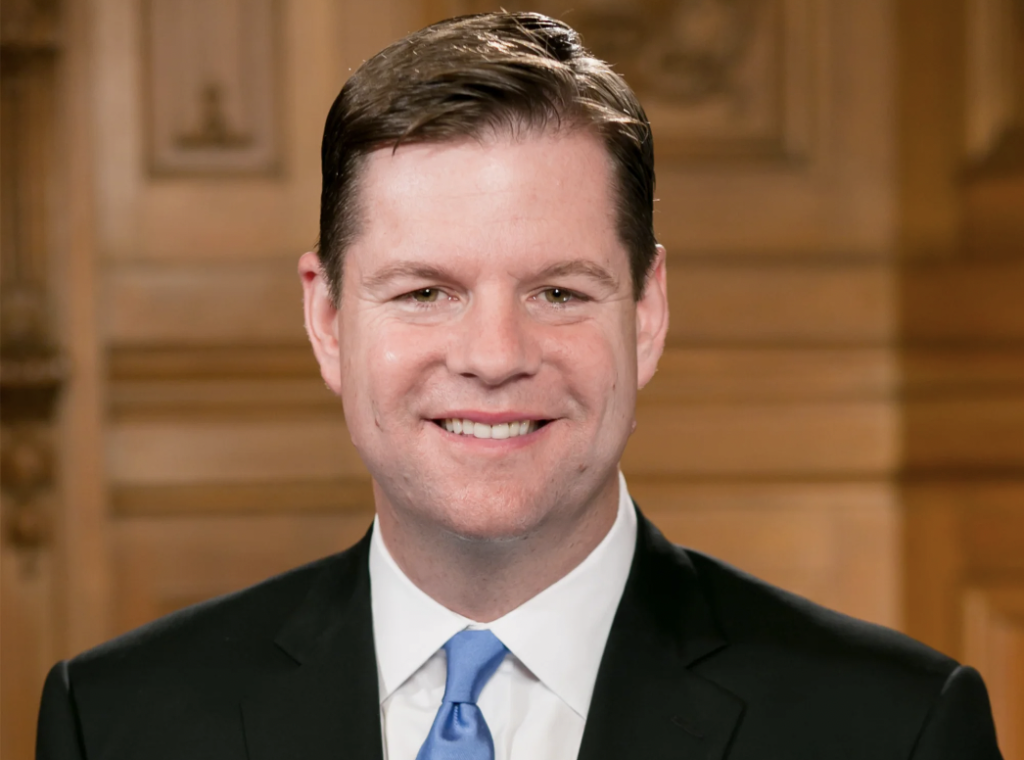Mark Farrell, who is trying to run to the right of Mayor London Breed on crime (and that means he’s running, as Larry David would say, “pretty, pretty far” to the right), now say he wants armed National Guard troops in the Tenderloin.
Star Trek envisioned this concept 30 years ago. Check it out:
Just use rifles and tactical gear and either put everyone in jail, which doesn’t work because there is no room, or corral them in a special zone.
Seriously: this is a discussion of public policy in San Francisco today.

My sister flew out to visit this week, and when she told me her flight times, she made clear that she’s on an Airbus, not a Boeing plane. I get it: Although the odds of a fatal aviation accident are still very low (you’re way more likely to be killed driving to the airport), the news about what was once among the premier engineering companies in the world is bleak.
How could this happen? It’s pretty simple, and it’s likely the same reason the Francis Scott Key bridge collapsed in Baltimore—and the reason that a lot of us are really nervous about robotaxis and robotrucks.
Here’s what The New York Times said in January:
Some aviation experts and executives have long said Boeing’s safety problems and its financial performance are intertwined. The company, these people say, has for many years put too much emphasis on increasing profits and enriching shareholders with dividends and share buybacks, and not enough on investing in engineering and safety.
Large investors that seek quick returns own a significant amount of Boeing stock. The majority of Airbus stock is owned by European governments, who have always seen it as something of a public service.
In a piece called “Corporate profiteering destroyed the Baltimore Bridge,” Sonali Kolhatkar notes:
The Dali, operated by shipping giant Maersk, was carrying more than 800 tons of corrosive and flammable materials. Transportation secretary Pete Buttigieg likened the 95,000-ton ship to an aircraft carrier and the New York Times explained that “When the bridge was built, cargo ships were not the size they are today.” In fact, such ships have grown steadily in size over the past few decades. One economist told the Times that shipping companies “did what they thought was most efficient for themselves—make the ships big—and they didn’t pay much attention at all to the rest of the world.” This in turn has forced nations to expand waterways to accommodate the behemoths, often at the expense of the public.
The ship was also running on something called “bunker oil,” the lowest grade of fuel that exists, and it’s often contaminated with other industrial waste, dumped into the fuel as cheap way of getting rid of the nasty stuff.
From Kolhatkar:
An unsafe aircraft is not an aircraft, it’s a death trap. And yet, within a capitalist framework, everything boils down to a cost-benefit analysis. If the cost of safety for companies like Boeing or Maersk outweighs the financial benefits, it’s simply not worth it for executives and shareholders.
So … soon we are going to have trucks on the roads, with 80,000 pounds of cargo, with no human being at the controls. Soon there will be thousands of robot cars driving through San Francisco, with no human being at the controls.
And the safety features will be determined by people who (like pretty much everyone in the tech business) are driven almost entirely by the desire for profits and return for the investors.
The United States, and cities like San Francisco, used to strictly regulate public services like airline travel, shipping, and taxis. The United States also used to tax corporate profits and capital gains at a level that was a hedge against greed.
Now we have this.
The Mayor’s Office is asking the Board of Supes for permission to apply to the state for a “Prohousing Designation Program.” This is part of the Gavin Newsom-Scott Wiener plan to reward cities that eliminate “obstacles” to private developers making money building housing most of the local workforce can’t afford.
From the legislation:
WHEREAS, The City has adopted a Housing Element that complies with California Government Code, Section 65585(h); and WHEREAS, The City is in compliance with applicable state housing laws; and WHEREAS, The City and County of San Francisco, acting by and through the Mayor’s Office of Housing and Community Development (“City”), desires to submit to the Department an application for a Prohousing Designation on file with the Clerk of the Board of Supervisors in File No. 240269 (“Application”).
The Land Use and Transportation Committee will consider the application Monday/1.
I suspect this will not be controversial: Everyone wants the city to get all of the benefits possible from the state, and “prohousing” comes with extra money.
But I will say, for the permanent record, that the Housing Element is a farce, a fraud, and everyone with any sense knows it. The measure calls for (and state law mandates) 46,000 units of affordable housing. Not one person at City Hall, or in the Planning Department, or anywhere in the known universe, has any plan to finance or build that much non-market housing.
Nobody with any sense can argue that the city can possibly meet the market-rate mandates, either.
We are all just dancing around and pretending that something is going to happen, somehow, to solve a massive social problem created by the people who we are now counting on to solve it.
That hearing starts at 1:30pm.





